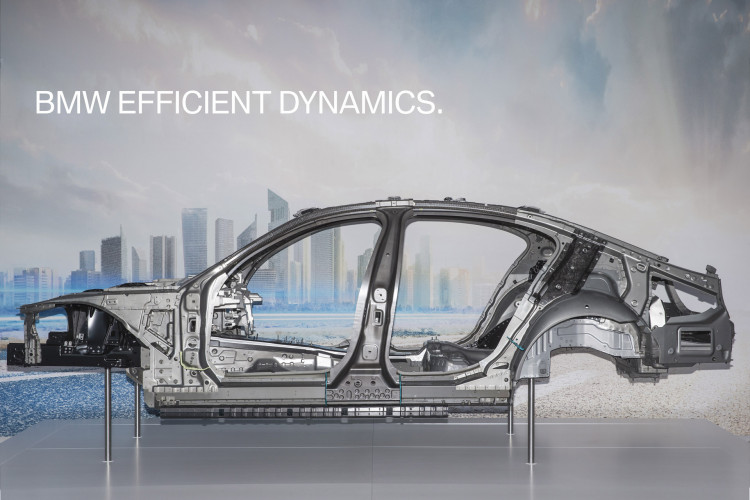Lightweight plays an increasingly important role in the automotive industry. From improved driving dynamics and fuel consumption, to the wear benefit from a lower weight, lightweight construction of automobiles is at the forefront of manufacturing processes. Premium automakers have invested heavily in expensive materials and new processes to sustain their goals for future cars.
BMW has decided a few years ago that lightweight will play an important role in their future. Over the years, the Bavarians have used lightweight carbon materials and carbon fiber reinforced plastics in most of their cars and superbikes. First carbon roof appeared in 2003 while in 2013, the i3 stunned the world with its extremely complex and lightweight construction. The i8 hybrid sportscar was next in line with an innovative carbon passenger cell.
Fast forward to 2015 and the new star of BMW lineup is the G11/G12 7 Series. Set to compete with the Mercedes-Benz S-Class, the new 7 Series uses advanced technologies learned from BMW’s newfound experience. To start, the construction will have extensive uses of CFRP (Carbon Fiber Reinforced Plastic), as well as other high-end materials such as aluminum and magnesium. What BMW calls Carbon Core Passenger Cell technology is a passenger cell that utilizes CFRP along with aluminum and high-tensile steels in the main passenger cell as well as B Pillars and roof. There are also aluminum doors and trunk lid as well as lightweight bonding and sound deadening. All of this weight savings leads to a 190 lb weight loss over previous models.
The weight savings are so impressive that they put the high-end luxury sedan at the same weight levels as the new 2017 Mercedes-AMG C63 S. According to the official info, the C63 S Coupe, without 75 kg for driver and luggage (DIN standard), weighs 1725 kg, exactly 228 kilos more than the M4 with manual transmission. The 740i weighs in at 1725 kg while the 750i tips the scale at 1820 kg.
Without a doubt those numbers properly reflect BMW’s strategy for the future where we expect new models to be lighter and more nimble than ever before.






































































